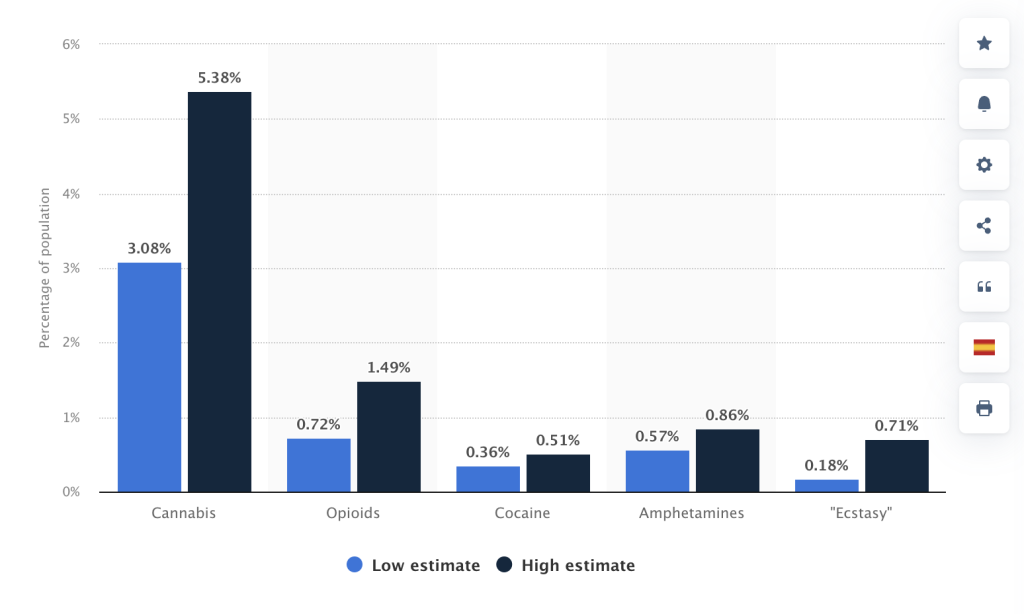
In 2021, the estimated number of illegal drug users worldwide was around 296 million. Among these users, 39.5 million could be considered “problem drug users” or categorized as having a drug use disorder. Addiction is a complicated and multifaceted issue that affects the lives of millions of people around the world.
Whether it’s tied to substances like drugs and alcohol or behaviors such as gambling or spending too much time online, addiction takes over the brain’s reward system, making it tough for individuals to break away from harmful cycles. The good news is that thanks to breakthroughs in neuroscience, psychology, and medicine, we now have a much better understanding of addiction—and how it can be effectively overcome. There’s hope and help available for those ready to take the first step toward recovery!
Let’s take a look at the scientific methods and strategies that can help you overcome addiction and reclaim your life. See The Dismissive Attitude Toward Sexual Abuse in Nigeria.
Addiction is a Brain-Based Disorder
Addiction is not simply a lack of willpower or a moral failing—it is a chronic brain disorder. When a person engages in addictive behaviors, the brain’s reward system is flooded with dopamine, a neurotransmitter associated with pleasure and reinforcement. Over time, the brain adapts to these high dopamine levels by reducing its natural production of the chemical and desensitizing dopamine receptors. This leads to tolerance (needing more of the substance or behavior to achieve the same effect) and withdrawal symptoms when the addictive behavior is stopped.
The prefrontal cortex, the part of the brain responsible for decision-making, impulse control, and self-regulation, is also impaired in addiction. This makes it harder for individuals to resist cravings and make rational choices. Understanding these neurological changes is crucial for developing effective strategies to reverse addiction.

Scientific Strategies to Reverse Addiction
1. Behavioral Therapies
Behavioral interventions are among the most effective tools for treating addiction. These therapies aim to modify harmful behaviors and thought patterns while teaching coping skills to manage triggers and cravings. Some evidence-based approaches include:
- Cognitive Behavioral Therapy (CBT): CBT helps individuals identify and challenge negative thought patterns that contribute to addictive behaviors. By developing healthier coping mechanisms, individuals can reduce their reliance on substances or behaviors.
- Contingency Management: This approach uses positive reinforcement, such as rewards or incentives, to encourage abstinence and promote healthier choices.
- Motivational Interviewing: This technique helps individuals find their own motivation to change by exploring their values, goals, and reasons for wanting to overcome addiction.
2. Medication-Assisted Treatment (MAT)
For certain types of addiction, such as opioid or alcohol dependence, medications can play a critical role in recovery. MAT combines FDA-approved medications with behavioral therapies to address both the physical and psychological aspects of addiction. Examples include:
- Methadone and Buprenorphine: These medications reduce cravings and withdrawal symptoms in individuals recovering from opioid addiction.
- Naltrexone: This medication blocks the euphoric effects of opioids and alcohol, reducing the desire to use.
- Acamprosate: Used for alcohol dependence, this medication helps restore the brain’s chemical balance and reduce cravings.
3. Neuroplasticity and Brain Retraining
The brain’s ability to rewire itself—known as neuroplasticity—offers hope for reversing addiction. Through consistent effort and healthy habits, individuals can strengthen neural pathways associated with self-control and reward. Strategies to harness neuroplasticity include:
- Mindfulness and Meditation: These practices help individuals become more aware of their thoughts and cravings without acting on them. Studies show that mindfulness can reduce stress and improve emotional regulation, both of which are critical for recovery.
- Exercise: Physical activity boosts dopamine levels naturally and promotes the growth of new brain cells, helping to repair damage caused by addiction.
- Healthy Habits: Engaging in activities like reading, learning new skills, or pursuing hobbies can stimulate the brain and create new, positive associations.
4. Social Support and Community
Addiction often thrives in isolation, but recovery is a social process. Building a strong support network can provide encouragement, accountability, and a sense of belonging. Key elements include:
- Support Groups: Programs like Alcoholics Anonymous (AA), Narcotics Anonymous (NA), or SMART Recovery offer a structured environment for sharing experiences and learning from others in recovery.
- Family Therapy: Involving loved ones in the recovery process can repair relationships and create a supportive home environment.
- Peer Support: Connecting with others who have overcome addiction can provide inspiration and practical advice.
5. Addressing Underlying Causes
Addiction is often a symptom of deeper issues, such as trauma, mental health disorders, or chronic stress. Treating these underlying causes is essential for long-term recovery. Integrated treatment approaches that address both addiction and co-occurring conditions (e.g., depression, anxiety, or PTSD) have been shown to be highly effective.
The Importance of Patience and Persistence
Reversing addiction is not a linear process—it often involves setbacks and challenges. However, scientific research emphasizes that recovery is possible with the right tools, support, and mindset. Relapse does not mean failure; it is an opportunity to learn and strengthen one’s commitment to change.
Conclusion
Addiction is undeniably a strong force, but it’s not unbeatable. By using proven strategies like behavioral therapies, medication-assisted treatment, techniques that harness the brain’s ability to rewire itself (neuroplasticity), and the power of social support, individuals can reshape their brains and step out of the cycle of addiction. Recovery is a journey—one that calls for patience, persistence, and self-compassion. But with the right tools and support, it’s absolutely achievable for anyone ready to take that first step. Science has shown us that the brain has an incredible capacity to heal, and as it does, so too can the lives of those impacted by addiction. There’s hope, and healing is possible.
- The Death of Fish Magnet and Why Kidnapping Continues to Thrive in Nigeria - August 2, 2025
- The Fall of Intelligence - July 10, 2025
- UK to Tighten Visa Rules for Nigerians and Pakistanis Due to Overstaying Concerns - May 7, 2025
Discover more from TruthPost
Subscribe to get the latest posts sent to your email.







